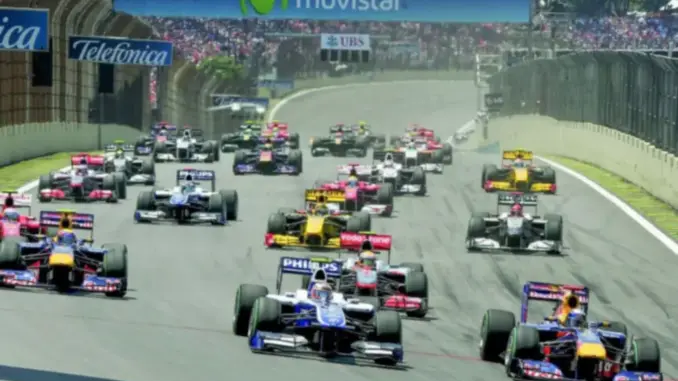
Max Verstappen has suggested that Formula 1 should return to the kind of cars it ran from the late 2000s to the early 2010s when the championship next moves into a fresh rules era.
The 2026 season will bring sweeping revisions to chassis and power unit rules, featuring smaller cars, active aero and a 50/50 split between combustion and electrical power in the engines.
This follows a trend where F1 cars have grown considerably over the years, making overtaking tougher and reducing close racing — issues the rule change aims to address.
Verstappen would like F1 to draw on the package it had about 15 years ago, when power units were naturally aspirated V8s and cars weighed roughly 180kg less.
“What matters most are lighter cars, smaller cars,” said the four-time world champion. “But you can only really achieve that if you alter the engine rules.
“At the moment, the power units are extremely efficient, but they’re also quite large. That makes the car longer, requires more cooling, so the car ends up quite big.
“I think if we could get something similar to the cars from the 2010 era, or even earlier, that would be good, because I believe it would improve the racing. But ultimately, I’m not the one making those decisions.”
Verstappen’s Red Bull outfit faces the extra task of introducing its own power unit next year after being supplied by Honda since 2019 and previously by Renault, Ferrari and Cosworth.
That raises uncertainty about how competitive Red Bull might be in 2026, particularly since the regulations are thought to potentially benefit Mercedes, which is rumoured to have the strongest engine.
But Verstappen declined to speculate about firm expectations for Red Bull as many unknowns remain about the pecking order for the coming season.
“It’s a big unknown, but honestly I don’t think many people can say right now, ‘yes, we are going to be really, really strong’,” he added. “There are no guarantees. I know what we’re attempting is a major challenge, including bringing our own engine, but it’s also a rather exciting challenge.
“It also gives us the best chance to be competitive rather than relying on another manufacturer to supply us an engine.
“The regulations are so intricate that, of course, the power unit will be hugely important, but you also must ensure you construct a good car.
“I think the opening races will be very demanding for everyone to integrate everything properly, from the power unit to the chassis and overall behaviour, so hopefully it will produce some interesting races.”
See also: Inside Formula 1 Drivers’ Most Incredible Personal Car Collections

Leave a Reply